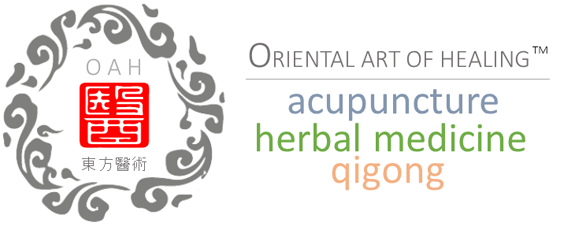According to Traditional Chinese Medicine (TCM), the heart is in the Fire category of the “Five Elements” and is the emperor of the body. It is in charge of the mind and decision making; it sets the rhythm for all the organs of the body and keeps the blood flowing. If the heart is the emperor, and it is not functioning properly, it can lead to anxiety, insomnia, forgetfulness, poor judgement and other malignant complications.
Heart disease is the leading cause of death for both men and women in the United States. Through acupuncture, Chinese herbs, exercise and some dietary changes, TCM can help strengthen the heart and prevent/treat heart disease.
Medical Qigong for the Heart
The spiritual aspect of the heart is referred to as the Shen in Traditional Chinese Medicine, (TCM). The Shen embodies our consciousness, emotions and thoughts. It gives us the ability to see from all points of view, not get caught up in our emotions and draws us closer to a consciousness greater than ourselves.
When there is disharmony, the Shen can manifest as anxiety, insomnia, muddled thinking, forgetfulness, chronic restlessness or mental illness, including depression and mania. Practicing medical qigong can help strengthen the Shen, and thus, strengthens the heart.
Heart disorders, such as coronary heart disease and angina pectoris, are said to stem from Heart yang deficiency, blood stagnation, dampness and phlegm build up. Traditional Chinese Medicine works to invigorate the blood circulation, unblock meridians, relieve pain, warm the heart yang, and dispel dampness and phlegm.
Some herbs used to treat cardiovascular disorders include:
Ren Shen (Radix Ginseng) – replenishes the qi, makes the heart beat stronger and more rhythmic.
Gui Zhi (Ramulus Cinnamomi) – promotes blood circulation and unblocks stagnation in the channels.
Ge Gen (Radix Puerariae) – dilates blood vessels to lower blood pressure.
Western drugs offer major benefits for emergency situations, yet, have serious side effects. Chinese herbs can be effective for both prevention and treatment of cardiovascular and circulatory diseases, however, should not be used in emergency situations or to replace any medications from your medical doctor.
Lifestyle instruction includes:
Exercise can help keep the blood vessels elastic, unclogged and flexible.
Healthy diet and lifestyle changes can reverse complications of the heart but needs to be continuous for a long time.
Some nutritional advice includes:
Eat high fiber foods (fruits and vegetables)
Avoid sweets and processed foods
Avoid alcohol consumption, smoking and exposure to second hand smoke
Increase intake of garlic, onions, raw nuts (except peanuts), olive oil, pink salmon, trout, tuna and mackerel.
Other recommended foods include: brown rice, celery, seaweed, water chestnuts, ginger, bananas, watermelon, sunflower seeds and shitake mushrooms.
Eliminate sodium, MSG, baking soda, canned vegetables, diet soft drinks, meat tenderizers and preservatives
Some supplements that are beneficial include: vitamin B5, vitamin C, vitamin E and chromium picolinate.


